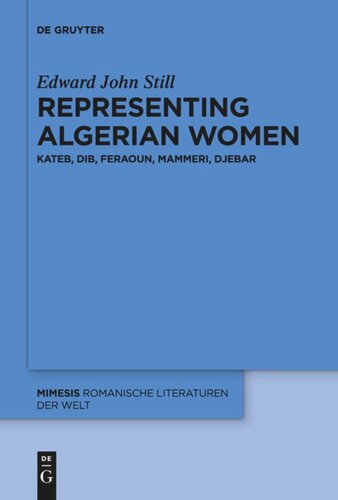

Most ebook files are in PDF format, so you can easily read them using various software such as Foxit Reader or directly on the Google Chrome browser.
Some ebook files are released by publishers in other formats such as .awz, .mobi, .epub, .fb2, etc. You may need to install specific software to read these formats on mobile/PC, such as Calibre.
Please read the tutorial at this link: https://ebookbell.com/faq
We offer FREE conversion to the popular formats you request; however, this may take some time. Therefore, right after payment, please email us, and we will try to provide the service as quickly as possible.
For some exceptional file formats or broken links (if any), please refrain from opening any disputes. Instead, email us first, and we will try to assist within a maximum of 6 hours.
EbookBell Team

4.4
22 reviewsThis monograph explores the ways in which canonical Francophone Algerian authors, writing in the late-colonial period (1945–1962), namely Kateb Yacine, Mohammed Dib, Mouloud Feraoun, Mouloud Mammeri and Assia Djebar, approached the representation of Algerian women through literature. The book initially argues that a masculine domination of public fields of representation in Algeria contributed to a postcolonial marginalization of women as public agents. However, it crucially also argues that the canonical writers of the period, who were mostly male, both textually acknowledged their inability to articulate the experiences and subjectivity of the feminine Other and deployed a remarkable variety of formal and conceptual innovations in producing evocations of Algerian femininity that subvert the structural imbalance of masculine symbolic hegemony. Though it does not shy from investigating those aspects of its corpus that produce ideologically conditioned masculinist representations, the book chiefly seeks to articulate a shared reluctance concerning representativity, a pessimism regarding the revolution's capacity to deliver change for women, and an omnipresent subversion of masculine subjectivity in its canonical texts.